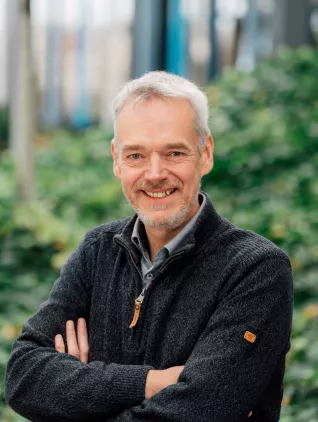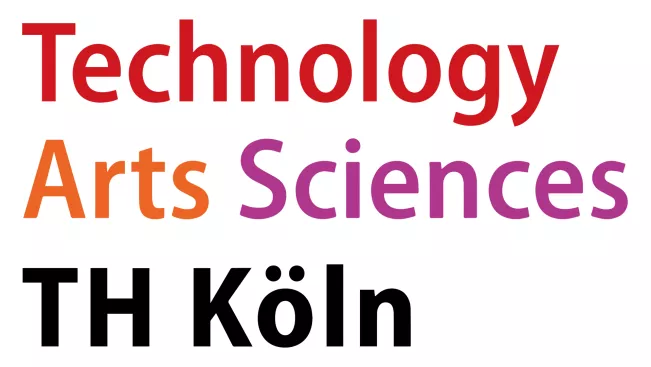EcoTwin - digital twin of urban green spaces

Research project at a glance

Departments and Instituts
Funding type
Period
01.08.2024 to 31.07.2027
Project Description
Aim
The EcoTwin research project aims to use private and public green spaces in a data-based and location-adapted way to reduce the impact of climate change. The digital twin of urban green spaces enables regional environmental and green space authorities and climate managers to implement practical adaptation measures based on specific site characteristics. Citizens are involved in this transformation process through participatory formats and can also contribute on their private green spaces. The combined environmental data is intended to support decision-makers in effectively using and strengthening the ecosystem services of green spaces.
The challenge
Two global megatrends - increasing urbanization and climate change - are leading to a mutually reinforcing stress situation. Both the increase in heat waves and extreme drought as well as the dangers posed by heavy and continuous rainfall cannot be averted without sustainable land management. Urban green spaces have a central role to play here, as they not only provide cooling and water storage functions but also promote biodiversity and increase people's well-being. A large proportion of unsealed settlement and traffic areas could contribute to climate protection through targeted measures. The extent to which the functions of urban green spaces (ecosystem services) can be provided depends largely on the site characteristics of the areas.
Method
In North Rhine-Westphalia, the data basis for climate and disaster prevention measures is excellent. In addition to a large number of freely accessible environmental databases, inexpensive and powerful environmental sensors have been developed in recent years that collect site-specific and daily updated data. As a result, there is no lack of data or technology to collect relevant environmental data, but rather a lack of data processing, interpretation and visualization in order to implement concrete climate adaptation measures on the ground. Artificial intelligence (AI) methods can help to process large amounts of data for specific target groups and make predictions about future developments. The aim of the project is therefore to link available environmental data in a “digital twin” of urban green spaces and make it available to decision-makers.
Briefly explained: the projekt "EcoTwin - digital twin of urban green spaces"

Digital twin
For a climate-resilient use of urban green spaces, it is crucial to bundle available environmental data from different sources and translate it into practical action concepts. The aim of the project is to supplement existing databases with sensor data that is prepared for specific target groups via API interfaces. The digital twin of urban green spaces forms the basis for environmentally and climate-adapted measures.
- Sensor development and data acquisition: New sensors for measuring moisture in the soil are to record variable data that will enable extended use of the digital twin. These sensors must work autonomously and establish an infrastructure for data transmission. One focus is on recording the moisture profile in the soil in order to derive specific options for action.
- Information modeling and AI-based search algorithms: The digital twin, a concept from Industry 4.0, enables the digital mapping of objects and processes, facilitating the optimization and automation of value chains. This principle can also be applied to urban green spaces, where no comparable digital models exist to date. By developing a digital twin for urban green spaces, centralized access to all relevant information is created, which simplifies the integration of data from different sources and reduces manual effort. This simplifies the development of innovative applications and predictive models that can, for example, forecast the water requirements of plants.
- Data evaluation and text automation (NLP): The project is developing simple visualization concepts and intelligent management functions that enable users to specifically identify green areas that currently need to be watered. This is based on information from the digital twin, which is automatically evaluated and supported by intelligent search functions. By using natural language processing algorithms, users can formulate their queries in natural language and the system delivers the relevant information. The combination of digital twin and artificial intelligence enables intuitive, effective and sustainable management of urban green spaces. This also simplifies the development of predictive models that forecast the water requirements of plants and ensure needs-based irrigation.
The digital twin in combination with AI technologies forms the basis for intuitive management of urban green spaces and contributes to strengthening climate resilience in the target regions.
Communication strategies and educational measures
The project relies on comprehensive communication strategies and educational measures to raise awareness of sustainability. In addition to the use of social media to disseminate information and gather feedback, targeted events and workshops are held in North Rhine-Westphalia and in neighboring regions such as the Netherlands and Belgium. These cross-border activities promote interregional exchange and strengthen cooperation across national borders.
Work packages and real lab
The project's work packages are closely interlinked:
- WP-1 deals with coordination, the evaluation of ecosystem services and the development of text automation for recommendations for action.
- WP-2 focuses on the technical infrastructure for data collection, including the development and networking of sensors.
- AP-3 builds the digital and cloud-based infrastructure, creates the digital twin and implements AI-based search algorithms and user interfaces.
Real-world laboratory and practical test of digital twin technologies
The real-world laboratory forms the heart of the project and enables the practical testing of digital twin technologies for urban green spaces. Innovative solutions are tested in the real laboratory under real conditions in order to evaluate their benefits and functionality. The relevant user groups, in particular climate managers and green space authorities, are actively integrated into the process from the outset. Through targeted training and events, they learn how to use the new technologies effectively in order to optimize their work processes and benefit from automation.
In the development phase, the needs and requirements of users are collected, while specific application scenarios are tested in the implementation phase. This is followed by the information phase, in which the collected findings are processed and passed on. If the pilot projects are successfully implemented, the results are disseminated through workshops, training courses and knowledge transfer formats such as short videos on social media. These measures aim to inform both those directly involved and other cities and citizens in NRW about the benefits of the digital twin and ecosystem services.
In the long term, the project aims to strengthen the competitiveness and attractiveness of the region through the successful implementation and dissemination of the results. By sharing knowledge and best practices, the project promotes a broader understanding of the benefits and potential of the digital twin, which contributes to better adaptation to the challenges of urban areas.

Follow us for research, that makes a difference!
Cooperation partners
Sponsors

Contact points
Contact International Centre for Sustainable Development (IZNE)




